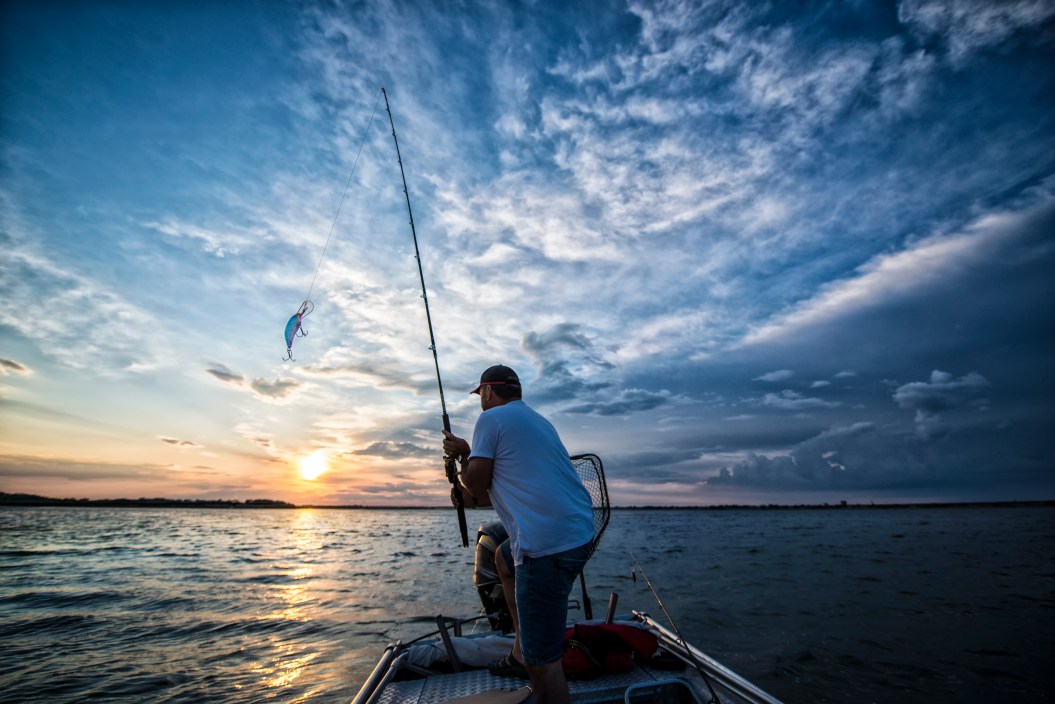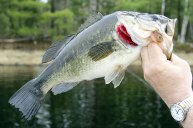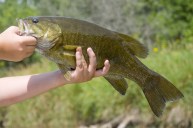Unless you've been living under a rock, you no doubt heard of the massive walleye tournament cheating scandal that happened in Ohio in October. Videos—which showed the tournament director of the Lake Erie Walleye Trail Tournament pulling multiple lead weights and fish fillets out of walleyes that were allegedly added to their catch to help Jacob Runyan and Chase Cominsky win a nearly $30,000 pot—went massively viral as the story made headlines worldwide. How those guys escaped the angry crowd of disgruntled competitors alive, I'll never know. By the way, these guys pleaded not guilty in Cuyahoga County Common Pleas Court near the end of October to several felony charges relating to the incident. Officials also seized Cominsky's boat during the investigation.
However, this wasn't the first allegation of cheating in tournament fishing. In fact, if you start researching, there's a whole bevy of incidents in recent years. In 2014, two men were arrested after they were found saving some caged bass in a pen on Lake Guntersville in Alabama for a tournament. In Minnesota, another person was accused of cheating after being seen bringing two fish to a tournament that were caught in a different lake. And there's more where those come from. This isn't a new problem, but it seems as if it is only coming to real light now due to the dramatic fashion in which Runyan and Cominsky were caught red-handed. It raises the question of what can be done to save the integrity of fishing tournaments big and small.
Why Cheating in Tournaments is Such a Big Deal
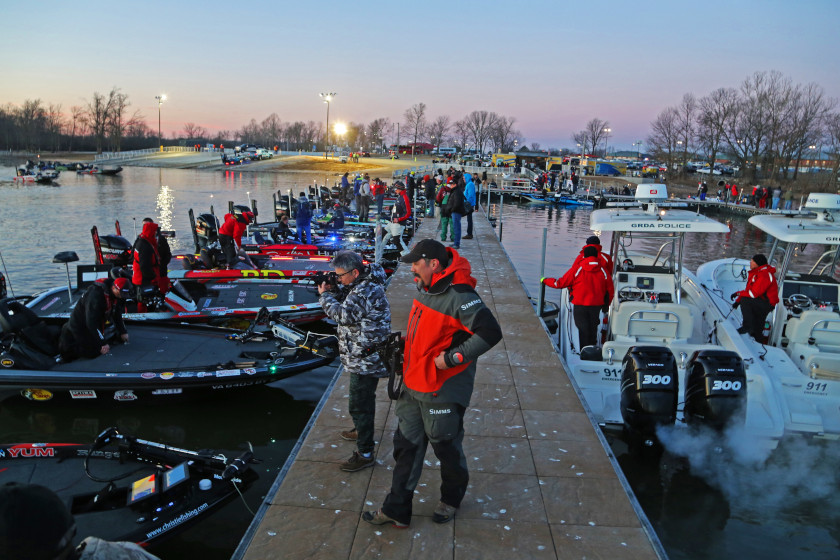
Star Tribune via Getty Images
Obviously, the anglers who are doing things the correct way have every right to be extremely peeved when a fishing tournament cheating scandal emerges, but it goes beyond just fair play. With so much money on the line—even in some amateur tournaments—cheating in a tournament becomes theft. In the case of Cominsky and Runyan, they were hit with felony charges of cheating, attempted grand theft, and the possession of criminal tools. They were also hit with a misdemeanor charge of unlawful ownership of wild animals for the fish filets, but that charge is probably the least of these guys' worries right now with the possibility of serious prison time looming. They've also got the entire fishing world waiting to see if justice will be served in the case.
In the meantime, tournament organizers around the country were getting hounded on social media asking what safeguards they have in place to prevent this kind of thing from happening at their weigh-in ceremonies. Then there are the sponsors. One of the first things Lake Erie Walleye Trail tournament director Jason Fischer did in the wake of the Ohio fishing tournament incident was take to Facebook, where he apologized for a second time to the sponsors of the tournament for his harsh language at the time of the discovery.
It seems the sponsors cut Fischer a break, considering the circumstances. Not that we blame him for getting hot in the heat of the moment. Any angler who cares about integrity in competition would also do so. And he did the right thing by telling Runyan to just leave. He also tried to calm the angry mob, telling them not to touch Runyan and Cominsky. But you could feel the anger of the mob in the videos of the incident, many of whom said they had their suspicions for years about Runyan and Cominsky. No matter which way you slice it, it's a sad day for tournament fishing.
Perhaps this scandal was a blessing in disguise because it shed a light on a larger problem, though as disappointing as that thought is. After all, we'd hope that most people play fairly and be gracious and humble in both victory and defeat. Unfortunately, the world doesn't work like that, especially when big money is on the line. So, the only question is where do fishing tournaments go from here?
What Tournaments are Doing to Combat Cheating
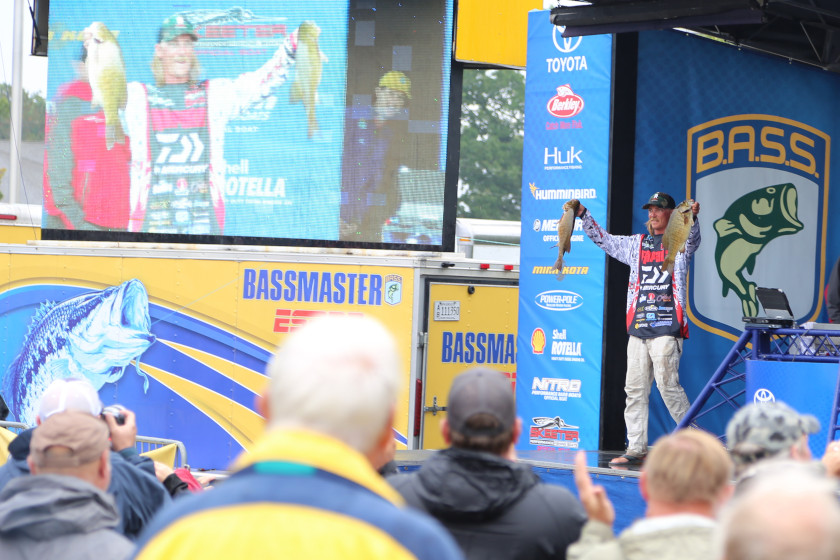
Star Tribune via Getty Images
Following that infamous incident that the whole world saw, the Lake Erie Walleye Trail Tournament immediately set about making changes. WTRF.com reports that the tournament will use scanners to detect metal or other foreign objects stuffed in fish. It also plans to physically inspect the fish caught by any of the top five placing teams. That alone seems as if it should be enough to dissuade most people from attempting any shady stuff. However, those will just be the latest tools in their arsenal. One of the long-standing tools of tournament officials has been the polygraph test.
There's a certain bit of irony in requiring a lie detector test for fishing tournaments due to the cliché about fishermen all being liars. Sadly, incidents like the one in Ohio just prove the necessity. Amazingly enough, Cominsky and Runyan were disqualified from another tournament in 2021 after they failed a lie detector test. It's a shame many tournaments feel the need to do this, because a single test can cost hundreds of dollars, which is just an additional expense for smaller competitions that are just trying to get off the ground.
However, polygraphs have been a huge part of larger fishing circuits for years. One of the lesser-known things about large tournament trails such as Bassmaster or Major League Fishing is that they regularly subject their winners to polygraphs. Bassmaster notes that it sometimes does these tests randomly or if another angler launches a written protest. Fortunately, it notes that these types of tests are rare.
Of course, polygraph tests are not without their flaws. There have been plenty of recorded cases of people being deceptive with them. Then there are other issues. For instance, in September 2022, two anglers sued a Rhode Island saltwater fishing tournament after it disqualified them from a July tournament following a failed polygraph. The New York Post reported that Edward Pollner and Rudolf Bonicelli argued that the test results were skewed because they were intoxicated when the test was administered. Bonicelli also argued that he was sleep deprived, further skewing the results. The disqualification cost the anglers a $200,000 payday.
Still, the polygraph is probably the simplest solution to dissuade the cheaters, although we are starting to see modern technology come up with some solutions. For instance, a mobile app called FishDonkey allows officials to run a more efficient catch-and-release tournament. According to the FishDonkey website, the app allows anglers to submit their catches to tournament directors digitally immediately. Additionally, the app recognizes older photos or photos that have been manipulated. It's a fascinating idea, and one that's probably better for the fish since it results in an immediate release.
It seems the FishDonkey app has become popular with smaller tournaments, especially high school teams, since it allows officials to keep entries easily organized. It's probably the next best thing to having an actual tournament official in each boat to make sure things stay on the level. That's something MLF has started doing in recent years. It feels extreme, but it's probably the most secure way to ensure every angler is playing fairly.
At the end of the day—short of putting officials as eyewitnesses in every boat, or requiring every boat to document all of their angling activities—these solutions are about all that can be done to stop cheating in fishing tournaments. We're just disappointed it needed to come to these solutions due to human nature being so untrustworthy. But at the same time, in a digital world where people are often deemed guilty until proven innocent, extreme measures are needed just to ensure a peace of mind with all competitors that things are on the level. These may not be the solutions we wanted, but they are the solutions that were needed. And if that's what it takes to keep the integrity in tournament fishing, then so be it.
For more outdoor content from Travis Smola, be sure to follow him on Twitter and Instagram. For original videos, check out his Geocaching and Outdoors with Travis YouTube channels.
